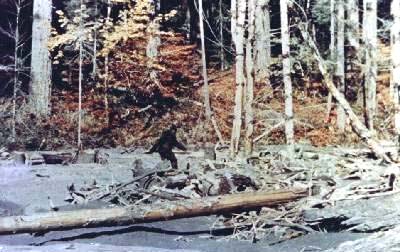
July 11, 2012

Great Moments in Bigfoot History
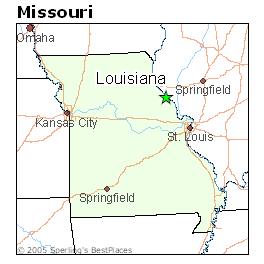
Louisiana, Missouri
July 11, 1972. At 3:30 p.m. on the outskirts of the town of 4,600, Terry Harrison (age eight) and his brother Wally (age five) were playing in their yard, which sits at the foot of Marzolf Hill. Suddenly, their older sister Doris, who was inside, heard them scream and looked out the bathroom window. She saw something standing by a tree: “Six or seven feet tall, black and hairy. It stood like a man but it didn’t look like one to me.”
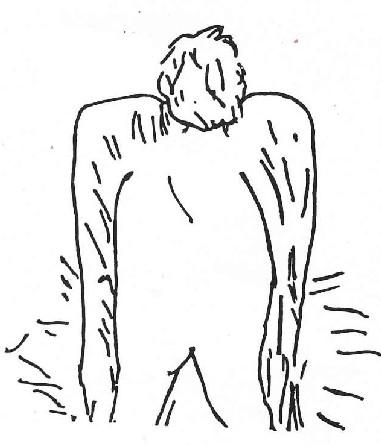
It appeared to be carrying a dog dripping blood. The following wave of sightings was dubbed “Momo” (Missouri Monster) by the media.
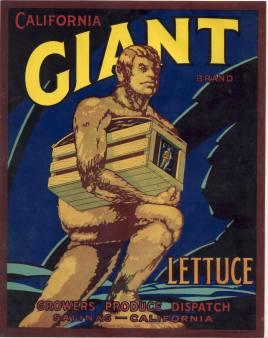
Salyer, California
July 11, 1968. A Bigfoot disturbed a family at their campsite on the Trinity River, near Salyer.

Butler, Ohio
July 12, 1978. The Kline family and 15-year-od Ken O’Neil have the last of their three separate sightings of “Bighead.” We also must assume they had big feet too.
Oroville, California
July 12, 1969. Charles Jackson and his six-year-old son Kevin saw a 7-8 foot tall Bigfoot near an outhouse that appeared to have three-inch long gray hair, and large breasts. Rene Dahinden interviewed Jackson, and noted the witness said the breasts were “huge pendulous” ones. The Jacksons, who had been burning trash on their Cherokee Road land, were frightened and ran inside. Many of us wished they would have taken photographs, instead.

Norfolk, Virginia
July 12, 1947. Future cryptozoologist and hominologist Loren Coleman was born. Soon, his parents returned to their ancestral Eastern Band Cherokee roots and moved back to the Heartland. They allowed the young Coleman to watch wonderful scifi, documentary-style Abominable Snowmen movies on television, use his paper route money to buy Ivan T. Sanderson’s books, contact researchers around the world through letters, and do field investigations with trustworthy local wildlife biologists and game wardens, starting at an early age.
In a few decades, he found, other than the priority of his sons, his life and passions centered around doing Bigfoot fieldwork and interviewing cryptozoology eyewitnesses throughout North America (49 states and 8 provinces), plus writing articles, books and blogs to share what he discovered. He first was interviewed on television in 1969, and never realized then how he would be involved in “reality television” into the 21st century. He reflectively found he had historically detailed and popularized cryptozoology and hominology along the way, far beyond how he could have ever imagined.
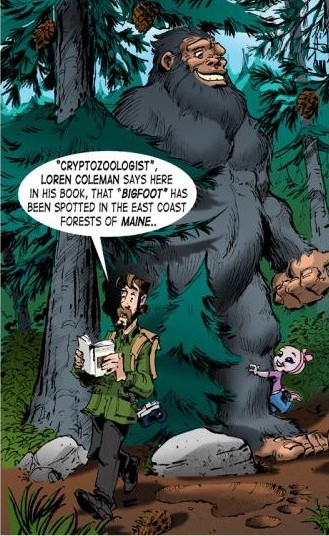
Today, he finds he’s been living in New England longer than the Midwest. For his birthday in 2012, he will continue work on enhancing the International Cryptozoology Museum and getting in the field, as often as possible (having just completed a 10-day, 3000-mile roadtrip throughout the East and Midwest USA).
Mount St. Helens, Washington
July 12, 1924. The Portland Oregonian on this date reported on “the fabled ‘mountain devils’ or mountain gorillas of Mount St. Helens,” and mentioned that “Indians have told of the ‘mountain devils’ for 60 years.” The volcano, located in Skamania County, was the site of encounters with miners in July 1924. This time has been remembered in terms of those Bigfoot attacks at Ape Canyon and Spirit Lake.
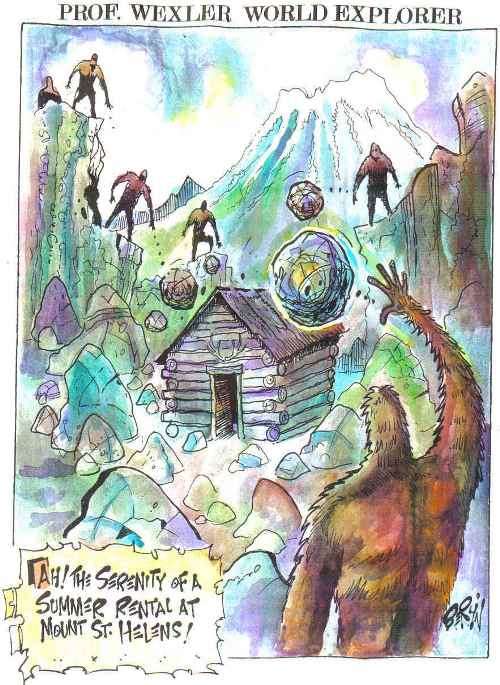
Credit: Charles Berlin.
Yukon, Canada
July 12, 1920. Pierre Berton was born in the Yukon. He went on to become a folklorist, storyteller, newspaperman, and famed television personality in Canada. Berton was responsible for gathering and sharing the Canadian tales of the Mahoni, Weetigo, Brush Men, Sasquatch and Windigo, especially in his 1956 book, Mysterious North.
M-36 Township, Michigan
July 13, 1978. Francis Jones and Michael Hacksworth saw a Bigfoot cross an Ingham County road in the early morning hours.
Saddle Camp, California
July 14, 1969. Bigfoot Bulletin’s George Haas and associate John Dana find 1⁄4-mile of Bigfoot tracks on a trail at West Low Gap in the Yolla Bolla Mountains going to the East Fork of the South Fork of the Trinity River. The tracks are 16 inches long and the stride is 3 feet.
Farmer City, Illinois
July 15, 1970. Police Officer Robert Hayslip of Farmer City went to the location (a campsite/lovers’ lane area) of recent sightings of the “Farmer City Monster,” described as a bipedal thinly legged Bigfoot. Between two and three o ‘clock in the morning, the officer reported he saw and heard something running through the grass. Soon after the sighting, he told Loren Coleman investigating at the site: “Out of the corner of my eye I could see these two extremely bright eyes, just like it was standing there watching me.” It soon disappeared into the bush.
Mammoth, California
July 15, 1970. A Deputy Sheriff found 18 inch Bigfoot tracks at 8500 feet elevation near a lake eight miles north of Mammoth, in the Mammoth Mountains.
Rockville, Maryland
July 16, 2005. Mark Chorvinsky, editor of Strange Magazine, died. Chorvinsky had been an outspoken skeptic of the Patterson-Gimlin Bigfoot film.
Gering, Nebraska
July 16, 1972. Two homemakers and a neighbor saw a 7-ft Bigfoot; the neighbor shot at it; the police found tracks.
Mainville, Pennsylvania
July 18, 1980. Rick Knovich, while in the Scotch Run Valley, saw a long black haired Bigfoot in a railroad bed by a road; it walked towards him and Knovich grabbed his gun, forgetting about his camera; the creature went into the bush as Knovich got out of his car. Again, another missed photographic opportunity haunts the history of Bigfoot.
Salina, Kansas
July 18, 1977. A woman reported a gorilla-like creature left 3-toed prints in her back yard.
Harrison Lake, British Columbia
July 18, 1974 Near the head of Harrison Lake, Wayne Jones was sitting by his campfire at night, when he watched a 7 to 8-ft Bigfoot for five minutes before other people disturbed it; the Bigfoot was licking mud off its fingers.
Huntington, New York
July 18, 1931. On Long Island, a nurseryman’s family (the Stockmans) saw a gorilla-like animal running through shrubbery. It was never captured, but was one of the earliest unknown hairy hominoid accounts to be found in the books of Charles Fort.
What other Bigfoot events have occurred in this time period that you remember?
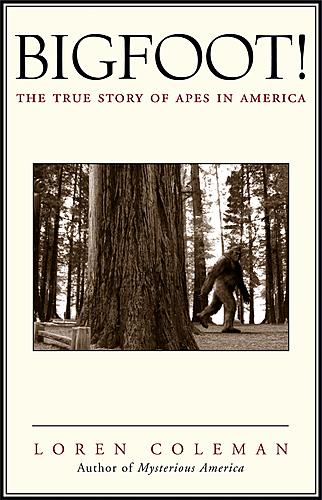
Bigfoot! The True Story of Apes in America
About Loren Coleman
Loren Coleman is one of the world’s leading cryptozoologists, some say “the” leading living cryptozoologist. Certainly, he is acknowledged as the current living American researcher and writer who has most popularized cryptozoology in the late 20th and early 21st centuries.
Starting his fieldwork and investigations in 1960, after traveling and trekking extensively in pursuit of cryptozoological mysteries, Coleman began writing to share his experiences in 1969. An honorary member of Ivan T. Sanderson’s Society for the Investigation of the Unexplained in the 1970s, Coleman has been bestowed with similar honorary memberships of the North Idaho College Cryptozoology Club in 1983, and in subsequent years, that of the British Columbia Scientific Cryptozoology Club, CryptoSafari International, and other international organizations. He was also a Life Member and Benefactor of the International Society of Cryptozoology (now-defunct).
Loren Coleman’s daily blog, as a member of the Cryptomundo Team, served as an ongoing avenue of communication for the ever-growing body of cryptozoo news from 2005 through 2013. He returned as an infrequent contributor beginning Halloween week of 2015.
Coleman is the founder in 2003, and current director of the International Cryptozoology Museum in Portland, Maine.
Filed under Bigfoot, Books, Cryptomundo Exclusive, Cryptotourism, CryptoZoo News, Cryptozoologists, Cryptozoology, Expedition Reports, Eyewitness Accounts, Media Appearances, Momo, Museums, Pop Culture, Sasquatch, Windigo, Year In Review